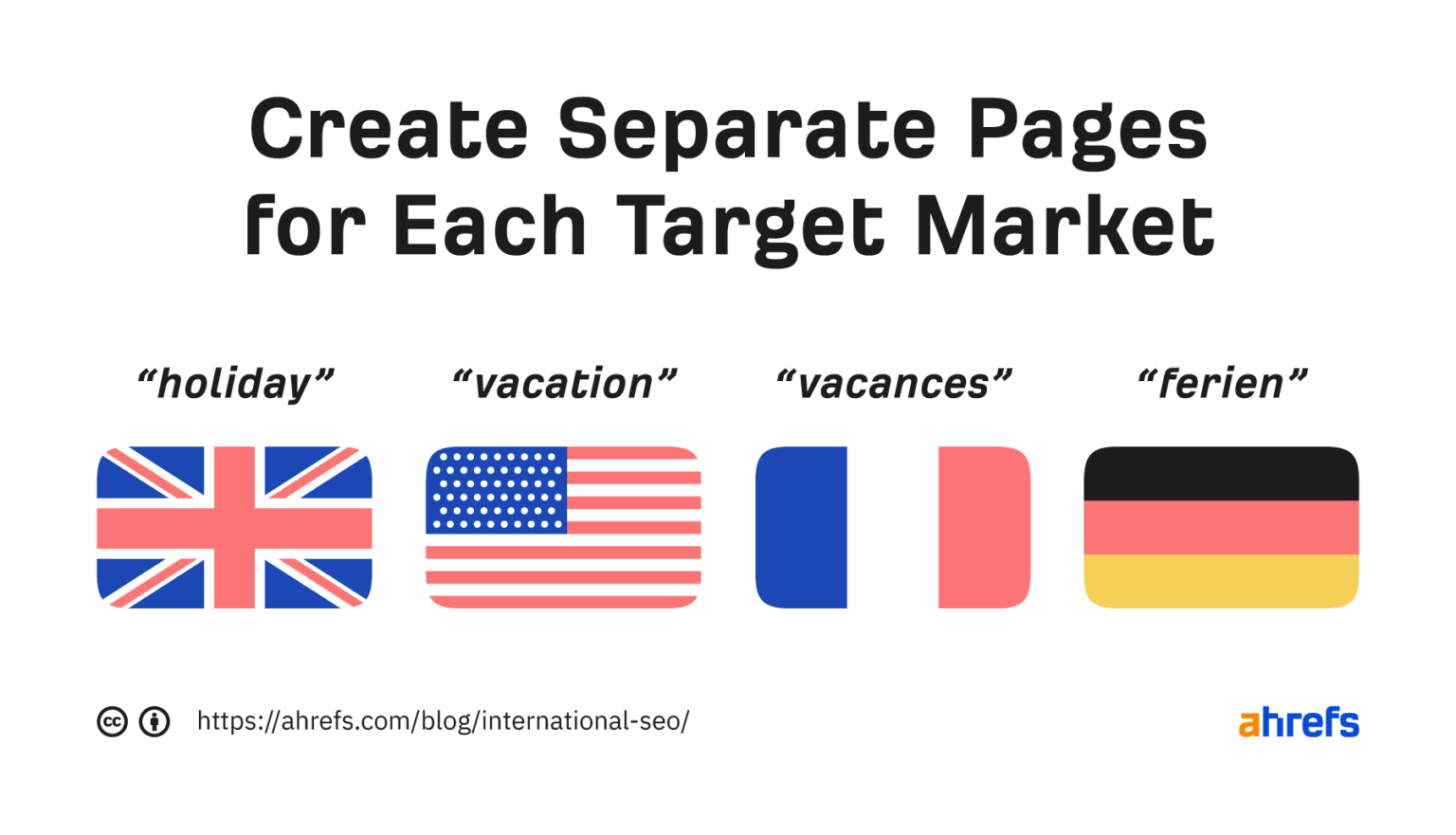Maximizing for the World: Learning International SEO Techniques
Maximizing for the World: Learning International SEO Techniques
Blog Article
Navigating the Digital Landscape: Leveraging International SEO for Cross-Border Success
In today's interconnected digital globe, businesses are progressively looking beyond borders to tap right into worldwide markets. The intricacy of browsing the digital landscape on an international scale requires a nuanced technique, from comprehending the fundamentals of International SEO to implementing geotargeting and multilingual keyword methods.
Understanding International Search Engine Optimization Fundamentals
Browsing the intricacies of international SEO needs a strong grasp of basic concepts to efficiently broaden online visibility throughout borders. One critical element of worldwide search engine optimization is understanding the relevance of localization. This involves customizing site web content to match the linguistic, cultural, and industrial differences of target markets. Search phrases have to be not only equated however likewise adjusted to show just how customers in various regions search for info.
Furthermore, having a clear understanding of geo-targeting is important. This includes indicating to internet search engine the specific nations or regions an internet site is targeting. Implementing hreflang tags is one way to communicate this details, ensuring that the right version of a webpage appears in the search results page for a user in a certain place.
Furthermore, understanding the impact of local online search engine and social media sites platforms is important for international search engine optimization success. While Google is dominant in several regions, countries like China have their very own search engines like Baidu, requiring customized approaches for each system to make the most of on-line visibility (International SEO).

Targeting Multilingual Keyword Techniques
Establishing multilingual keyword strategies is essential for effectively getting to diverse international target markets and optimizing on-line exposure across different linguistic regions. When targeting multilingual search phrase methods, it is crucial to perform complete study to understand the specific search terms and phrases utilized by the target audience in each linguistic area. This involves not only translating keyword phrases but also taking into consideration cultural nuances, local dialects, and search trends unique per target audience.
To produce a successful multilingual key words technique, it is very important to prioritize importance and search intent. Key words need to align with the content on the website and resonate with the cultural context of the target audience. Utilizing devices such as Google Search Phrase Coordinator, SEMrush, or Ahrefs can help determine high-performing keyword phrases in different languages and evaluate their search volume and competition level.
Furthermore, tracking and analyzing the performance of multilingual keywords frequently is necessary for optimizing and fine-tuning the approach over time. By constantly adapting to modifications in search behavior and trends, companies can boost their online visibility and draw in more global traffic to their internet sites.
Executing Geotargeting and Hreflang Tags
When intending to improve worldwide search engine optimization techniques, integrating geotargeting and hreflang tags is essential for optimizing web site presence across different regions. Geotargeting includes tailoring content to specific places, guaranteeing that individuals in various areas get pertinent details. By executing geotargeting, organizations can enhance their neighborhood search rankings and attract region-specific website traffic.

Optimizing Internet Site Structure for International Exposure
To additionally enhance use this link worldwide SEO strategies past geotargeting and hreflang tags, enhancing the web site framework is essential for accomplishing global exposure and making the most of reach throughout different regions. A well-structured site not only improves individual experience yet also facilitates search engine spiders in comprehending the web content and context of the website.
Furthermore, creating language-specific subdirectories or subdomains can help online search engine supply the best version of the website to customers based upon their language choices, additionally boosting the total individual experience. Furthermore, maximizing URL frameworks to include appropriate keywords and geotargeted terms can improve the site's presence in various regions. By structuring the website successfully for international target markets, services can raise their chances of bring in international traffic and broadening their reach across boundaries.

Monitoring and Examining Cross-Border Performance
Efficient monitoring and studying of cross-border efficiency is vital for assessing the success of global SEO methods and identifying possibilities for renovation in worldwide reach and exposure. By carefully tracking vital efficiency signs (KPIs) throughout various markets, organizations can obtain important understandings into the efficiency of their cross-border SEO initiatives. Keeping track of metrics such as organic web traffic, keyword positions, conversion rates, and bounce prices can give a thorough view of exactly how well a website is performing in different regions.
By contrasting performance across different countries, regions, or languages, companies can identify effective methods and center content to better provide to certain target audiences (International SEO). Routine analysis of SEO performance on a global scale makes sure that companies can adapt their methods promptly to utilize on emerging chances and preserve an affordable edge in global markets.
Conclusion
Finally, international search engine optimization plays an important role in achieving cross-border success by maximizing sites for global presence, targeting multilingual key phrase approaches, carrying out geotargeting and hreflang tags, and monitoring cross-border efficiency. By understanding the basics of worldwide search engine optimization and site here optimizing website structures accordingly, businesses can effectively reach and engage with their target market across various regions and languages. This calculated strategy is necessary for broadening market reach and driving on-line growth in today's digital landscape.
Report this page